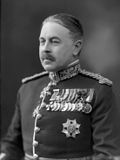| Kirkcaldy Burghs | |
|---|---|
| Former burgh constituency for the House of Commons | |
| 1950–1974 | |
| Seats | One |
| Replaced by | Kirkcaldy |
| 1832–1950 | |
| Seats | One |
| Type of constituency | District of burghs constituency |
| Created from | Dysart Burghs [1] |
Kirkcaldy Burghs was a burgh constituency of the House of Commons of the Parliament of the United Kingdom (Westminster) from 1832 to 1974. It elected one Member of Parliament (MP) by the first-past-the-post voting system. From 1832 to 1950 it was, officially, a district of burghs constituency.
Contents
- Boundaries
- 1885–1918
- 1918–1949
- Members of Parliament
- Election results 1832–1885
- Elections in the 1830s
- Elections in the 1840s
- Elections in the 1850s
- Elections in the 1860s
- Elections in the 1870s
- Elections in the 1880s
- Election results 1885–1918
- Elections in the 1880s 2
- Elections in the 1890s
- Elections in the 1900s
- Elections in the 1910s
- Election results 1918–1949
- Elections in the 1910s 2
- Elections in the 1920s
- Elections in the 1930s
- Elections in the 1940s
- Election results 1950–1973
- Elections in the 1950s
- Elections in the 1960s
- Elections in the 1970s
- References


